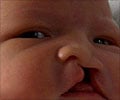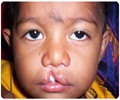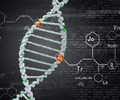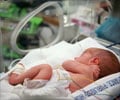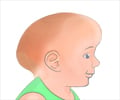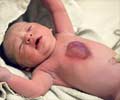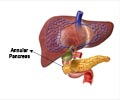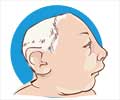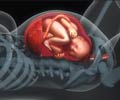Glossary
Congenital: Congenital is a term, which denotes Acquired by birth.Chromosome: A structure in a cell nucleus that consists of genes. In humans, 23 pairs of chromosomes, each pair containing one chromosome from each parent, carry the entire genetic code.
Down syndrome: A disorder caused by the presence of an extra chromosome 21 and characterized by mental retardation and distinguishing physical features.
Neural tube: structure in early fetal life that develops into the brain, spinal cord, spinal nerves and spine.
Spina-bifida: In the spinal column through which the spinal cord may protrude.
Amniotic fluid: The fluid which, contained in the sac of membranes known as the amnion, surrounds the fetus and provides a shock absorber and a secondary vehicle for the exchange of body chemicals with the mother.
Fetus: Term for an unborn baby from the end of the 8th week after conception until birth
Alfa Feto Protein: A protein produced by fetal tissues and some types of cancers in adults. Usually undetectable in the blood of healthy non-pregnant adults.
Placenta: It is part of the fetus and supplies oxygen and nutrients to the growing baby.
Miscarriage: A miscarriage (spontaneous abortion) is the spontaneous loss of a fetus before the 20th week of pregnancy.
Congenital defects: Problems or conditions that are present at birth.


